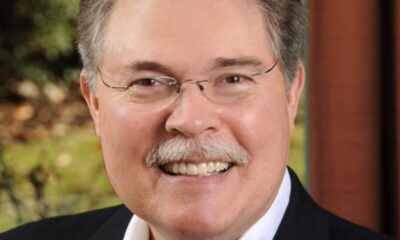City Government
Registering Security Cameras, Medlock Bridge Road, City Marshall and More with the City Manager [Podcast]
Published
2 years agoon
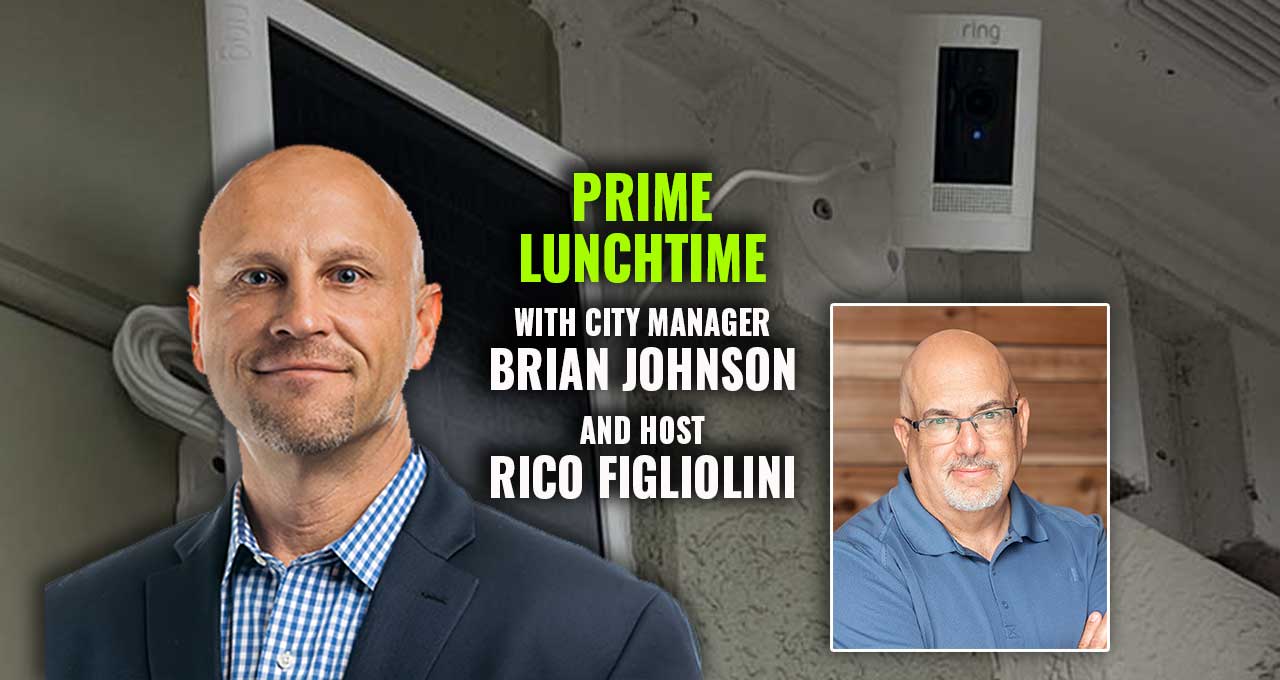
Here’s why you should register your Ring doorbell with Connect Peachtree Corners. Plus, we discussed the Medlock Bridge and Bush Road intersection, the City Marshall system, the Town Center Parking Deck maintenance and the upcoming Economic Development Master Plan.
Timestamp:
[00:00:30] – Intro
[00:02:06] – Home Camera Registering with Fūsus
[00:09:29] – Parking Deck Partially Closed for Repairs
[00:12:52] – Medlock Bridge Road Repair Progress
[00:17:26] – Tree Removal Along 141
[00:22:29] – City Marshal Program Update
[00:32:37] – Writing a New Comprehensive Plan
[00:38:07] – Closing
“The mayor and council agree with me that really making our community safe is about the most important responsibility we have. Because it will affect all other things. There’s a lot of other important things too, but for us to be a great community to live, work, learn, and play, it’s got to be safe.”
BRIAN JOHNSON
Podcast Transcript
[00:00:30] Rico: Hi everyone, this is Rico from Peachtree Corners Magazine and Peachtree Corners Life. We have our special guest as we do almost every month, Brian Johnson, the city manager. Hey, Brian.
[00:00:40] Brian: Rico, how are you?
[00:00:42] Rico: Good, good. When we’re taping today, it’s actually a cold day, but it’s a beautiful sunny day, so it’s all good. Before we get into our discussion, updates about what’s going on in the city, I just want to say thank you to our corporate sponsor, EV Remodeling Inc. And Eli, who’s been a great sponsor of these podcasts and of the magazine. So I want to put a shout out to him and let you all know that if you’re looking to do anything from design to build, in home improvement from extensions to whole house improvement, Eli’s the one. So EV Remodeling, they live in Peachtree Corners, they’re based in Peachtree Corners. It’s a good local company. A lot of people like them. Check them out. EVRemodelingInc.com is where you can find out more information. So now let’s get into the show. There’s a few things we want to go through. Lots of things have been going on. We’re going to be hitting on some of these. So then we can even clear up some stuff that I didn’t even understand on some things happening. So it’s all good to be doing this with you, Brian, and I always appreciate you straight shooting and giving us the information we all need to know. Why don’t we start off with the first thing with Fūsus Technologies company here based in Peachtree Corners, that has been instrumental in helping Atlanta police, helping Gwinnett police, find criminals through technology and crime center in the cloud. So there’s something going on now about registering home base cameras. So tell us a little bit about that and what that is.
[00:02:06] Brian: Yeah. And Rico, Fūsus, which is a Peachtree Corners based company here created a platform that can link all cameras of different makes, models, into a mesh network. That can both talk to each other and be used by law enforcement. And it doesn’t have to be owned by one entity. Like it’s not just city cameras, it just allows private cameras to voluntarily enroll their cameras into this program. So we create this net of surveillance for use by law enforcement, and in the two unfortunate fatalities we’ve had in the city within the last six months. The Norcross High School student shooting, and then the failed carjacking or car slider. Both of those shooters in both of those cases were identified because of the city’s cameras and the Fūsus platform. And so it does work. Now, of course, the best crime is the one that’s not committed. So, we would much prefer to prevent versus use it to solve, but it does help. What we’re doing now is on residential cameras, these are cameras that are not owned by businesses, these are private residents. A lot of people have video surveillance of some sort. Ring video doorbell, Amazon’s got products, and Google’s got products, Simply Safe, I mean all that kind of stuff. Well, all those cameras are important to law enforcement in that, law enforcement wants to know that they exist. And that if a crime is committed in the area, the police department would know how to contact the owner to request a segment of their video they’re recording for the use in investigating the crime. And so what we’re asking is for people to take their cameras and enroll them. That’s all this is. This is merely telling Gwinnett County PD through the city’s program that, I have a camera. You can describe it and you can do more than one, but you can say, I have, five cameras. I have a doorbell camera, and I’ve got four cameras on the exterior looking around my house. If you want any of the video that I’m taping, here’s my contact information, and then that’s it. What we’re doing, what Fūsus does then, is it creates a map. And it’ll allow Gwinnett PD to see all the places that they know that there are cameras. And if a crime is committed there, then they also know how to quickly get ahold of the owner and quickly ask for some video that might be important because of a crime. And without this, if there’s a crime committed somewhere, the only way the police can know if there’s video footage in the area is to canvas, the area by knocking on doors. And that’s time and labor intensive. And people aren’t always home versus you provided your contact information and you know, somebody can call me or email me and I can help very quickly provide Gwinnett PD with the information they want. And again, it’s a case by case basis, so you can enroll your camera. And for some reason, you could decide in that particular case, you didn’t want to share your data. All this done, allows Gwinnett to know where there are cameras and where to request video from that on a case by case basis. So we really encourage everybody to do it because it’s not, none of this is, all of a sudden anybody has access to your camera. Nobody can use it, you know?
[00:05:50] Rico: Right. That’s important to say, right? There’s no physical access through wifi or networking to the camera. The person would have to physically download that video and then send it off to the police, so.
[00:06:01] Brian: That’s correct. And the Fūsus platform also provides a really easy way for you to, like drag and drop the particular date, time of video that the police might be asking for. And that’s it. I mean, nobody’s getting access to it. You’re just providing what they request so that they can do it quickly. So nobody should feel like they shouldn’t register their camera. I get it, if they don’t want, which is why it’s not part of it. On the commercial side, there will be a second level where some commercial establishments will give the police department access to their video feed. But that’s only on commercial establishments and that’s a different program. On the residential side, you have nothing to lose. All you’re doing is telling the police that I have a camera and if you ever might need it, here’s how to contact me and I will consider your request.
[00:07:01] Rico: And that makes sense because you don’t want, you want the police to have available as immediate as possible video, if God forbid there’s a child abduction. Kids waiting at the bus line and something happens, or there’s something violent happens or burglary happens in the neighborhood, they can trace the street path of possibly where the cameras are and time of the incident. So there’s all sorts of reasons why the homeowners should register their video camera.
[00:07:32] Brian: That’s right. It’s not just their own property, Rico, you make a good point. This isn’t just, if there’s a crime on your property, it could be there’s a crime elsewhere in your neighborhood.
[00:07:42] Rico: That’s right.
[00:07:42] Brian: Say you have a doorbell camera, the car has got to go across the front of your house and your camera might give the police, while that car, or a person walking or whatever, it could give valuable information to solve other crimes. So we encourage everybody to enroll.
[00:08:01] Rico: And certainly if it’s a serial crime where you have car break-ins in a neighborhood, I’ve seen friends that have shown me videos of their driveway, well, all of a sudden you see a guy walking up the driveway, checking door handles to see if any of them are open. I mean, eventually, that type of stuff. And not even covering their faces is the strangest part.
[00:08:20] Brian: Right. Porch pirates, I mean, but you know, this is just an easy way for you to share the data. And it doesn’t even have to be requested. You can actually reach out to Gwinnett PD through it by saying, Hey, I’m getting ready to send you, on my own, video of a porch pirate. And there’s his face, I’d like to file a police report. Here’s why. And it’s just an easy way to communicate and share information for us to make this community a safer place.
[00:08:49] Rico: Yeah. We should all participate. Go to ConnectPeachtreeCorners.org. That’s the website. So anyone listening to this should go to ConnectPeachtreeCorners.org and that’ll give you all sorts of information. Right now I’m looking at 95 registered cameras, 255 integrated cameras. I guess there’s a, a live member account on here.
[00:09:11] Brian: That would be commercial establishments.
[00:09:14] Rico: Okay.
[00:09:15] Brian: Acme Widget Company has a, lay down yard in the back of their property, a warehouse. They want the shipping doors to be under surveillance and they just tell Gwinnett, Hey, you can tie into our camera anytime you want. Those are the integrated ones.
[00:09:29] Rico: Okay, gotcha. Alright, cool. So check that out. If you’re looking to help out and you’re using a ring or Alexa or whatever you are using. Next on my list is, so the parking deck at Town Center, Peachtree Corners Town Center, portions of it will be closed, I think beginning February 1st. If I have that right. For repairs. Give us a little background on that.
[00:09:50] Brian: Much like any new construction, whether it’s your home or elsewhere, when you build something brand new, you need to give it time for everything to settle. And the kinks to get worked out. You’ve flexed all the parts and you’ve been to all the corners and everything. And so we’re kind of finishing up the parking decks, had some time for, everything to settle. And there’s some areas that we think there needs to be a little bit of repair work. Now that it’s kind of at the point where it’s going to stop moving and settling like it does when it was brand new. And so unfortunately most of this work has got to be on the outside edge along where most people will know where the EV chargers are. Because just on the outside of that is the retaining wall for the creek. And so, that’s the most sensitive part of the parking deck. And so that’s why we’re, kind of finishing punch list items from the parking deck. And it requires equipment to get and close off that ramp. So there will be a period of time in which those electric vehicle charging stations will not be accessible because equipment will be in there. So, it looks like it actually won’t start until the middle of February.
[00:11:09] Rico: Okay.
[00:11:09] Brian: So we’ll keep it open until the bitter end, but when it does, they have too much equipment. On the backside there’s nowhere outside of the parking deck in that location for them to stage. Because it just falls right off.
[00:11:21] Rico: So actually just a portion of the deck, I said the whole deck, but just a portion. So the portion with the EV charges all the way up that part. And the entrance to that EV charging area, which is on the CineBistro side is going to be closed. And the entry from Lazy Dog Restaurant’s side is going to be closed.
[00:11:40] Brian: That’s right. Both sides of that ramp all the way down. Because again, the work being done on that side of the parking deck, there’s nowhere on the outside of the parking deck for the equipment to stage because it’s a drop off to the creek. So we’ve got to do it on the inside, and so it closes it.
[00:11:58] Rico: But the rest of the deck is opened.
[00:12:00] Brian: Yeah, the rest of the deck is open and, you know, we hate it. Trust me. I mean, the EV charging stations are, just the Tesla ones are the most heavily used Tesla Chargers in the US off interstate system.
[00:12:19] Rico: Really?
[00:12:20] Brian: So, yes.
[00:12:21] Rico: Told a little trivial pursuit of EV charging facts.
[00:12:28] Brian: Right. I mean, it gets a lot of use and there’s places off the interstate system where they obviously more. But you know, that’s business right now, so pretty cool. But, unfortunately we’ve got to do this work at some point. So now’s the time to rip the bandaid off. It was right after the holidays, which we didn’t want to effect. So we’re going to get on it and we’ll get it fixed and get it back open.
[00:12:52] Rico: Alright. Talking about repairs, continuing down that road, if you excuse the pun, Medlock Bridge Road, 141, Peachtree Parkway. That intersection, that area has been a burden to the city, to its residents. It’s taken three years to get to where we are. But finally it seems like everything’s finally getting together and gelling between, I guess, the state, the county, and everyone involved, utilities. So tell us, what progress, where we are with that.
[00:13:19] Brian: And, you know, as a reminder, this intersection project is a joint project between us and the county and Medlock and Bush Road, our county maintained Road. So the county’s actually paying like 80% of this project. So, you know when you pay 80% into something, you have the most say in what’s going on. And so there have certainly been some decisions that were made after the project started that have prolonged it, including like burying certain lines for the new traffic signal that originally were not slated to be buried. They were going to go above ground, but they made a decision, no, let’s go ahead and bury it. And while then that means more material and, orders take longer and just, things like that, push it out. Of course, COVID had something to do with it, supply chain. But at the end of the day, that’s probably a decision, if we had been asked, we would’ve probably said, yes, go ahead and do it. Because that means that power to this intersection is going to be less at risk of a power outage if we have a storm, if all the lines are buried. And so that was the decision making calculus here is, look, while we’re doing this project, let’s just bury all the power and fiber so that this intersection should, if electricity goes out, it should continue to work because the lines are buried. So anyway, we are getting close to having the final parts we need for this traffic signal cabinet to run the software. And that was a chip, a micro chip that we’ve been waiting on. And if anybody’s read those kind of things, you know, the automotive industry has got massive car lots full of cars that are missing one chip because there’s a shortage. Well, this traffic cabinet, which runs the cycle of signals, we’re waiting on that. We’re waiting on a, when we bury the utilities, there’s got to be an underground utility cabinet there. So we should be getting close to being able to move the last traffic pole that was in there. And at a minimum get all the resurfacing finished. So all of that starts. Although, to remind everybody project, even though it’s been a long time, it actually hasn’t closed any lanes. All of this is about adding lanes. So you know, traffic, if we never did this project, traffic would still the way it is right now.
[00:16:08] Rico: Yeah, I mean, I drive that almost every day. And quite frankly, I know people are complaining about it, but there’s no difference, I think. Once it’s complete, it’s really no difference from what’s going on now to some degree. Right?
[00:16:20] Brian: Correct. But the main one would be the pedestrian crossing coming off of Bush Road, going to the Town Center will be better. That is one. So people who walk to the Town Center along Bush Road, that will be improved. It’s probably the biggest improvement. You know, you’ve got a deceleration lane we added for those coming off of Medlock, turning onto Bush Road. Coming from say the Spalding Drive area.
[00:16:45] Rico: Right, right.
[00:16:46] Brian: But the main, will probably, improvement would be the slip lane for those coming up Bush Road towards the Town Center, and they want to head north up Peachtree Parkway. They won’t even have to worry about the traffic signal because they will have a dedicated, call it on-ramp, a slip lane that’ll pull them right around to the current on-ramp that you use to get on there. So that’ll flush traffic wanting to head north on 141 in a way that they don’t even have to wait for the signal, they just have automatic slip lane going. So that’s probably gonna be the biggest advantage. But we’re hoping that, February is when we’re scheduled to get the chip, so we’re hoping that that’ll be it.
[00:17:26] Rico: So, we’re close. A couple of months, I guess, to be fair. Cool. So this again, this is another part of where a lot of us drive, and that’s coming off Peachtree Industrial Boulevard, where that split is, of 141 and Peachtree Parkway. Peachtree Industrial Boulevard, and Peachtree Parkway. So there’s been a lot of clearance of trees there and stuff. And variety of reasons, different reasons have come up. None of which apparently is true at this point. Because I thought it was being cleared because of the new monument that’s eventually would get put there. Someone else had thought the state had come in because there were a lot of, I don’t know how many homeless tents in the back of that area. But apparently it wasn’t because of that. Apparently it’s because line of sight. Well, tell us why is that? Why are trees being cut away along the state route?
[00:18:14] Brian: So, and in fact, all up and down 141, there was tree clearing recently by actually two entities, Georgia DOT, and Georgia Power. Two separate initiatives that we did the best we could to coordinate them to kind of do it at the same time so that you didn’t have lane closures and all that stuff at different times. Their purpose of both of them coming in was to remove trees that they deemed to be posing a more significant risk to, in Georgia Power’s case, the power lines along the road. In Georgia DOT’s case falling into the road during a storm event and posing a hazard to the public or sight lines. So, you know, as trees fill out and branches, sometimes they can start getting into sight lines. And so when Georgia Power and DOT come in, and mind you, we have nothing to do with this, this is the state’s road. State Route 141. And Georgia Power certainly has a utility easement that gives them the right to remove trees that they deem, or branches of trees that they deem to pose a risk. But when either of these entities come in and do this, and not just in Peachtree Corners, they will overdo it. And by overdo it, I mean, they don’t have the resources to come in on a consistent basis. They want to come in and do this and not have to come back for, 10, 15, 20 years.
[00:19:47] Rico: Right, right.
[00:19:48] Brian: So they overdo it. And so they will overcut, they will over clear, they will really kind of scalp the area because they’re like, we don’t want to come back. And in the case of the split, GDOT, and if anybody who’s driven, you know, up PIB at the split and they’ve stayed left to go to Peachtree, you know, go on Peachtree Parkway.
[00:20:12] Rico: Sure.
[00:20:12] Brian: And the light at Holcomb Bridge is red, and the cars would back up. You could come smoking around that corner if traffic was good, there wasn’t slow traffic. You’d come around the corner and you could be doing, 55, 60, or more depending on the driver. And then all of a sudden you come around and there’s cars stopped. And GDOT was like, you know what, we are going to remove any of that sight line risk. We were surprised at how much they removed as well. I don’t feel like all of that was necessary. But it’s almost like, well, it’s almost like I went into a barber with a full head of hair and I said, just take a little off of the top and this is what I came out looking. It’s just like, the first time I saw him do it, I’m like, whoa, easy there, boss. I mean, you know. Their mindset is we don’t want to come back and this thing, trees and plant material grows. And so we had nothing to do with that. We were surprised. There is, probably late spring, we do have a project that will enhance the Paul Duke Gateway sign.
[00:21:21] Rico: Okay.
[00:21:21] Brian: But we haven’t started on it yet, and that would’ve not affected any of the trees. I mean, all of that wouldn’t have removed any of the trees. So I, for those who knew that pop-up project’s happening, I can see why somebody would think it was the city. But I promise you, we’ve been guilty about cutting trees or too many trees, but that was surprising. But again, GDOT’s mandate is to safely move cars from point A to point B and site line is the consideration. So between them and Georgia Power, that’s why all that work was done. And so kind of finishing up, there was a homeless camp down at the bottom. Not a big one, I would say there might have been, looked like, four or five individual. We’re not even sure if they were always there. Could have been, you know, they were coming back. But when they removed those trees, there was a period of time before they cleaned it out that you could see the tents and little areas. So, yeah, it’s almost done. They’ll put in mulch where they removed all the trees. And sometime in the spring, we’ll upgrade that sign and that’ll be the way that intersection looks.
[00:22:29] Rico: Yeah. If anyone wants to see what that looks like, they should go to LivingInPeachtreeCorners.com and just search State of the City 2022. The video is there. In fact, they show in the video, it’s shown what the signs will look like. So check that out. Cool. So I guess the next, probably the last thing here, is I just want to get back onto a little bit about what’s going on with the City Marshal. The mechanics now, of a little bit of what the process might be over several months and stuff. So, because the City Marshal system is coming in, right? There’s no doubt at this point that will not come in. So what is the process and give us some timeline idea of where you think this is going, Brian?
[00:23:09] Brian: Yeah, so, the program itself of having City Marshals here is going to happen. Based on our conversations with other communities who have this program outside of the city, or excuse me, outside of Gwinnett or even in Gwinnett. Like in the case of Sugar Hill, they have the very program we are looking to create, and because they use Gwinnett PD for their law enforcement or the enforcement of state law. And they created a City Marshall program so that they have post certified officers to enforce city code. And why that’s unique is, most cities have code enforcement officers, they’re called. But unless they’re post certified, they can’t enforce certain things because they don’t have the right to, take away somebody’s civil liberties if you will. Like arrest somebody, or detain somebody, or things like that. And so they can only go so far. And if there’s a, you know, and in our case, there’s some gaps between what Gwinnett PD can do. Because the legal department at Gwinnett County has taken the stance that they cannot enforce city code inside our city. And they’re post certified, so that would’ve helped. And our code enforcement can enforce city code, but they’re not post certified. So there’s a little bit of a gap that needs to be filled. And so, we’re going to fill it with City Marshals, which are going to fill that gap. We’re still going to be using Gwinnett PD to enforce state law. But we’ll be able to have some resources at our disposal to target specific things that are important to us at the time. Like here, just in Peachtree Corners. And sometimes that isn’t quite as important to the leadership of Gwinnett Police Department, headquartered up in Lawrenceville, providing police protection for a very, you know, second most populist county in the state. So sometimes we need the ability to take assets that don’t have limitations and direct them at things that are important to Peachtree Corners. So that’s why we’re doing it. What we’re doing now is if you imagine, we’re going to have these three new positions. We’ve got to start building, you know that we call it table of organization and equipment. Alright, who’s answering to whom? How much are we going to pay? What are their uniforms going to look like? What type of vehicles are we going to have them drive? What type of weapon are they going to carry? Are they going to have body cams? If so, what kind? I mean, you can start getting into a lot of things that you have to, and that’s what we’re doing right now is building the framework. And we have a pretty good estimate on cost, which was presented to council when I presented them my proposal on creating this program. And I did it just to ensure that we can do this without there having to be any property tax. We can absorb this within our budget, which is important for everybody to know.
[00:26:23] Rico: So this is within the existing budget.
[00:26:25] Brian: Correct, yeah. So there’s not like some new fee coming or property tax that’s going to already start to be levied. No, we can do it within our existing budget. We do have to get the exact numbers. Some of this stuff has long lead times. But all of this is being put into the budget. What would be the FY 24 budget, which starts July 1st, 2023, this year. And so really this program will go live July One. At that point, and maybe I would’ve already started advertising the positions by then. You know, it could be August, September before we get some people in. And at that point they’re in here, and then we have a few more things that you’ve got to do. We’ve got certain policies and procedures we’re going to need to write. Creating their left and right limit because they’re going to come in and they’re going to have all of the very same authority that Gwinnett Police Officers have. They’ll have that. Where they’re gonna be limited is by our policy. We’re going to say. Yeah, yeah, you can do all that, but you’re not going to. This is where you’re going to concentrate on. You’re going to fill gaps and focus on areas that are really important to us in Peachtree Corners that are very unique to Peachtree Corners. And so that, you know, I’ve already started writing some of those. So there’s a lot of work to this, even though it’s just City Marshals and it’s just going be three people.
[00:27:55] Rico: Oh, but you have to, yeah. I mean, we’re fortunate I guess, because like you said before, Sugar Hill, City of Sugar Hill has a similar thing. Are you actually looking at that to see how they interact with Gwinnett Police? And not just how they interact, but policies, technology to use to interact. We’re not taking 911 calls, obviously. You know, how do you interact when you detain someone and then Gwinnett Police has to come and actually do the arrest, to collar, if you will. And then all, like you said, the details of body cameras. Well, it’s not just we need body cameras, but which brand, what type, how do you?
[00:28:32] Brian: Correct. How long are we going to score the video? I mean, things like that. And so, yeah. I mean, you know, Sugar Hill has been helpful in that. Their City Manager, Paul Radford and I know he is a really good guy, really smart manager. Their program has been run pretty well, so we’ve been talking to them. That’s always helpful. There are other City Marshal programs in the US and we borrow from those programs and we find good examples and templates for us to make our own. And so that’s being done right now. But yeah, I mean, it is going to happen. It’ll be in the FY 24 budget. Technically speaking, July One, it’ll all be funded fully and I’ll start writing checks against that budget. But you know, by the end of this year, we will have three Marshals and a program and policies guiding their actions to make Peachtree Corners the safest community we can possibly make it.
[00:29:29] Rico: And one last thing was this, I forget now. We did discuss this on our last podcast, but was this a 24/7 type of deal as well, or is this?
[00:29:39] Brian: No, I mean, again, you start getting a 24/7 and you would need more people than that. No.
[00:29:45] Rico: Okay. That’s what I thought.
[00:29:46] Brian: They would, generally speaking, they would probably be your normal business hours.
[00:29:52] Rico: Okay.
[00:29:52] Brian: But much like code does right now, there will be a consistent, call it exception to that. Where like maybe once a week, one of the officers is not going to come in until 6:00 PM and they’re going to work till, 2:00 AM. Just looking, you know, maybe targeting certain things. And then if we have something that really becomes a problem, I may end up having all three of them focus on something on odd hours or over a weekend. Things like that. But normally they’re not going to need to be 24/7. Again, 911 and the enforcement of state law, which are all felonious crime, that’s still going to be Gwinnett PD. They’re still 24/7.
[00:30:36] Rico: Will they provide any security or any policing, if you will, during big events like, Friday Night Concerts or the Peachtree Corners Festival or things like that?
[00:30:45] Brian: Oh, sure. And I don’t foresee us stopping our off-duty police program either. Where we pay off duty Gwinnett officers to work the Town Center. From like, was it like 3:00 PM to 11:00 PM, I think, is what we have an off-duty shift. I don’t foresee us stopping that because again, I want that to be a safe place and we’ve certainly grown a lot of toys and stuff out at the Town Green to encourage people to go there. So the more people who go there, the more you know you need. So this is an ad. There are volunteer, call it reserve programs, where you can end up having other people help with certain things as part of volunteers from the community. So it opens up some doors for us that we didn’t have without exercising the city’s authority to create these type of things. So again, mayor and council rightly so, agree with me that really making our community safe is about the most important responsibility we have. Because it will affect all other things. There’s a lot of other important things too. But, for us to be a great community to live, work, learn, and play, it’s got to be safe.
[00:32:02] Rico: I totally agree, totally agree. I’m glad the city’s moving that way. Because if you don’t feel safe, you don’t feel like going out. We covered my list. And I’m glad that we were able to get through and talk about some of these things and touchpoints on a bunch of these things. I know over the next few months there’ll be more things coming and happening. I know that there were a couple of boards appointed or reappointed this past week or so. It’s going to be stuff coming out from the redevelopment authority and some of the other government entities. So there’s going to be a lot to talk about. Not as much development maybe at this point.
[00:32:37] Brian: Well, one other thing, the one thing I do want to add at the end of this. Our comprehensive plan, all cities in Georgia have to have what’s called a comprehensive plan. And it is a master plan to guide how the community is going to tackle your general components of being a city. Public safety, transportation, housing, things like that. Well, every 10 years you have to write a complete new one. And then, after that, five years later you have to update it. So every 10 years you have to rewrite it. And we’re in the 10 year. It expired, our first one expired last year, so we’re rewriting ours. There’s going to be a series of public meetings, community meetings that we’re going to be holding over the next four-ish months. And which we’re inviting the community to come out and provide us some input on what they want to see the direction of this city in some of those areas I just mentioned. Rico, you’ll be getting something to help with this, but on February 23, it’s gonna be our first full on community meeting. And its purpose, its main topic is housing.
[00:33:52] Rico: Okay.
[00:33:53] Brian: And so, you’ve been covering the city for a long time. If you could pick one thing, one matter that over the 10 years we’ve existed, tends to get the most criticism on an ongoing basis, it tends to be housing. Specifically, rental.
[00:34:13] Rico: For sure, for sure.
[00:34:14] Brian: And so for those who want to have a say, to learn, to help guide how the city is going to handle that stuff. Going into the next five to ten years. That meeting is going to be a very important meeting to show up. We will have a lot of experts there, including ones who represent like developers, and developers to give us a perspective on what they look for. We can talk about legal constraints the city has on zoning decisions and all that kind of stuff. So very important. All these are important. But we tended to get, from an ongoing, consistent basis, criticism of decisions the city’s made, tended to be mostly around housing decisions, zoning decisions around, you know, in that housing component. So if you are one of those people who don’t think that it was going the right direction, that is the meeting to show up.
[00:35:10] Rico: So the housing, if I remember correctly from my planning commission days, the comprehensive development plan actually includes a map that will show areas where we might restrict certain types of housing, restrict businesses.
[00:35:24] Brian: That’s correct. You’re referring to what’s called a future land use map. And that’s right Rico. It is a map in which it is, in somewhat broad brush, it doesn’t go parcel by parcel, but it basically paints a broad brush of character areas. And it’ll be like, we want this corridor to be a commercial corridor. We want this area over here to be multi-family to serve this. We want this one to be single family. That map is the map that both planning commission and city council refer to when people come in for zoning decisions. And if they’re requesting a rezoning and they look at the future land use map and it is not rezoning in the direction that future land use map says it should go, generally speaking, that’s when Planning Commission and City Council are like, nope.
[00:36:15] Rico: I think that map also can be looked at two ways because it’s a map that we all know over a period of time, certainly over a decade. The character changes even, because exceptions are made and once one exception is made, then other exceptions will have to follow, no doubt. Right? So it’s both how some people look almost like at the Bible in some ways, if you will. It’s should be strict, strictly followed. And others believe it should be aspirational because over a decade of time that plan changes a bit, you have aspirations of Technology Park should stay just the way it is where there’s some housing now because it’s already been adjusted and the rest of it should remain that way.
[00:36:58] Brian: Spoken by somebody who has been involved in land use decisions and planning commissioner. But you are right, Rico, a hundred percent. It is very much like the Bible or even like the Constitution. You have people who feel like it should be strictly adhered to and others are like, look, it provides guiding principles that can be. And you’re a hundred percent right. But regardless how you feel about it, it has to be produced. It is referenced all the time. And if you want to either know what it’s going to look like or be able to provide input and potentially influence the way it looks. That’s the meeting, you know, that’s the comp plan meeting that you’re going to want to go to. Follow on ones will be around, like transportation and again, public safety, and things like that. But this housing one, February 23, it’s going to be a big one. So, more information and invitation to follow. But while you and I are on here, we should talk before that in February because our council meeting is before that.
[00:38:07] Rico: That’s right. Yeah, okay.
[00:38:09] Brian: Anyway, that’s all I’ve got. So, thanks for your time.
[00:38:12] Rico: Thank you Brian. I appreciate it. Thank you everyone for listening in. Certainly go to LivingInPeachtreeCorners.com you’ll always find more information. Follow us on Instagram, Facebook, and Twitter. February 23rd, Thursday, that’s a Thursday, is that first meeting on housing, on the comprehensive development plan, the input of that. So check that out and we’ll have more information as we get to it. Thank you again for listening in. Thanks Brian for being with me.
Related
City Government
Councilmember Eric Christ: 2025 Peachtree Corners Municipal Elections
Published
1 month agoon
March 3, 2025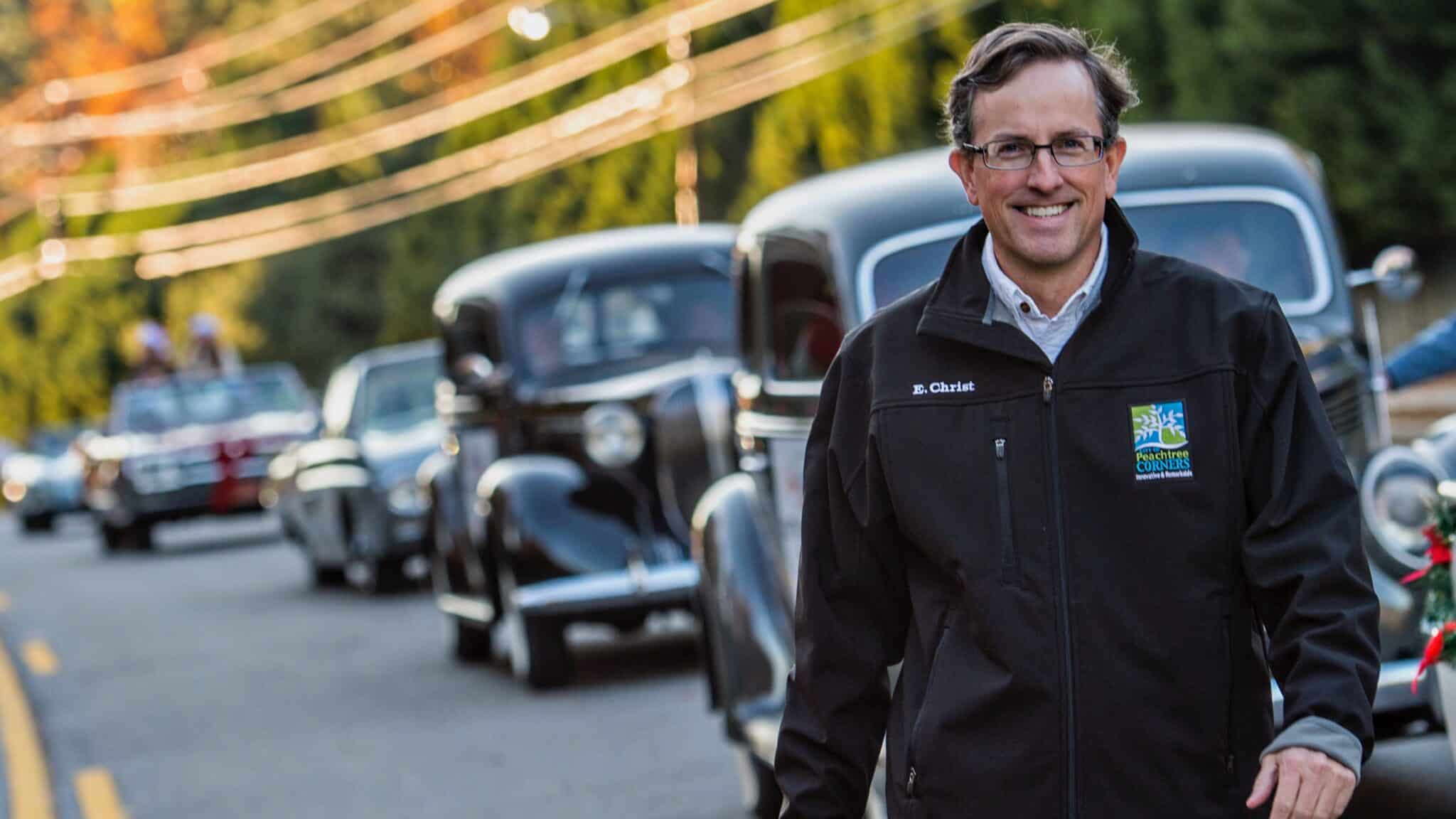
Source: Peachtree Corners Post 2 Councilmember Eric Christ’s recent newsletter.
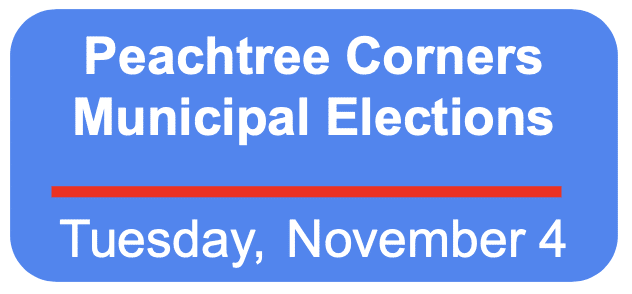
On Tuesday, November 4, we will have municipal elections here in the City of Peachtree Corners for three council seats. [And] for the first time since 2013, there will be a state-wide election on the same day as our city general election.
The state-wide election is to fill two seats on the Public Service Commission, which regulates Georgia Power and other utilities.
For the PSC election, the Gwinnett County Board of Elections will have all 156 county precincts open on November 4. Historically, Peachtree Corners has had a single voting location for city elections — at City Hall.
If we do the same this year, citizens who want to vote in both the PSC and the City Council elections will need to go to two places to cast their ballots.
A few years ago, I convinced the County Board of Elections to remove their prohibition against the Gwinnett Elections Department managing city elections. (Every county surrounding Gwinnett already offered this service to their cities.)
This means there is the potential of adding our city council elections to the county ballot.
I would like to hear your thoughts on the pros and cons of combining our city council races with the county’s for this year’s elections.
Please complete my brief survey by clicking here.

To sign up for Councilmember Christ’s newsletter or find him on social media, visit linktr.ee/votechrist.
You can read more from his latest newsletter updates here and here.
Related
City Government
City of Peachtree Corners Receives Distinguished Budget Presentation Award
Published
2 months agoon
January 31, 2025
For the eighth year in a row, the City of Peachtree Corners has been esteemed with the Distinguished Budget Presentation Award. This award was presented by the Georgia Finance Officers Association (GFOA) for the City’s Fiscal Year 2025 budget submission.
The award represents a significant achievement by the entity. It reflects the commitment of the governing body and staff to meeting the highest principles of governmental budgeting. To receive the budget award, the entity had to satisfy nationally recognized guidelines for effective budget presentation. These guidelines are designed to assess how well an entity’s budget serves as a:
- policy document
- financial plan
- operations guide
- communications device
Budget documents must be rated “proficient” in all four categories and in the fourteen mandatory criteria within those categories to receive the award.
Certificate of Recognition
When a Distinguished Budget Presentation Award is granted to an entity, a Certificate of Recognition for Budget Presentation is also presented to the individual(s) or department designated as being primarily responsible for having achieved the award.
“Congratulations to the entire finance team on receiving this award,” said City Manager Brian Johnson.
“This recognition is a testament to our team’s hard work, professionalism and commitment to excellence.”
There are over 1,700 participants in the Budget Awards Program. The most recent Budget Award recipients, along with their corresponding budget documents, are posted quarterly on GFOA’s website.
Award recipients have pioneered efforts to improve the quality of budgeting and provide an excellent example for other governments throughout North America.
About the GFOA
The Government Finance Officers Association (GFOA) advances excellence in government finance by providing best practices, professional development, resources and practical research for more than 21,000 members and the communities they serve.
About the City of Peachtree Corners, Georgia
As the heart of what is being called #SiliconOrchard in the metro Atlanta region, Peachtree Corners is a vibrant municipality that’s home to more than 45,000 residents and an innovation hub that houses some of the world’s most disruptive technology companies.
As the United States’ premier smart city powered by real-world connected infrastructure and 5G, Peachtree Corners serves as the model for how government and private industry can better collaborate to create a better future for society and business.
From the world’s first deployment of teleoperated e-scooters to fully autonomous shuttles being utilized by actual residents, and from a solar roadway to the largest electric vehicle charging hub in the region, Peachtree Corners is where the most future-forward Internet of Things (IoT) and sustainable technologies come to life for the benefit of its people and the world.
For more information, visit peachtreecornersga.gov.
Related
City Government
BRACK: How one city operates without property tax
Published
2 months agoon
January 30, 2025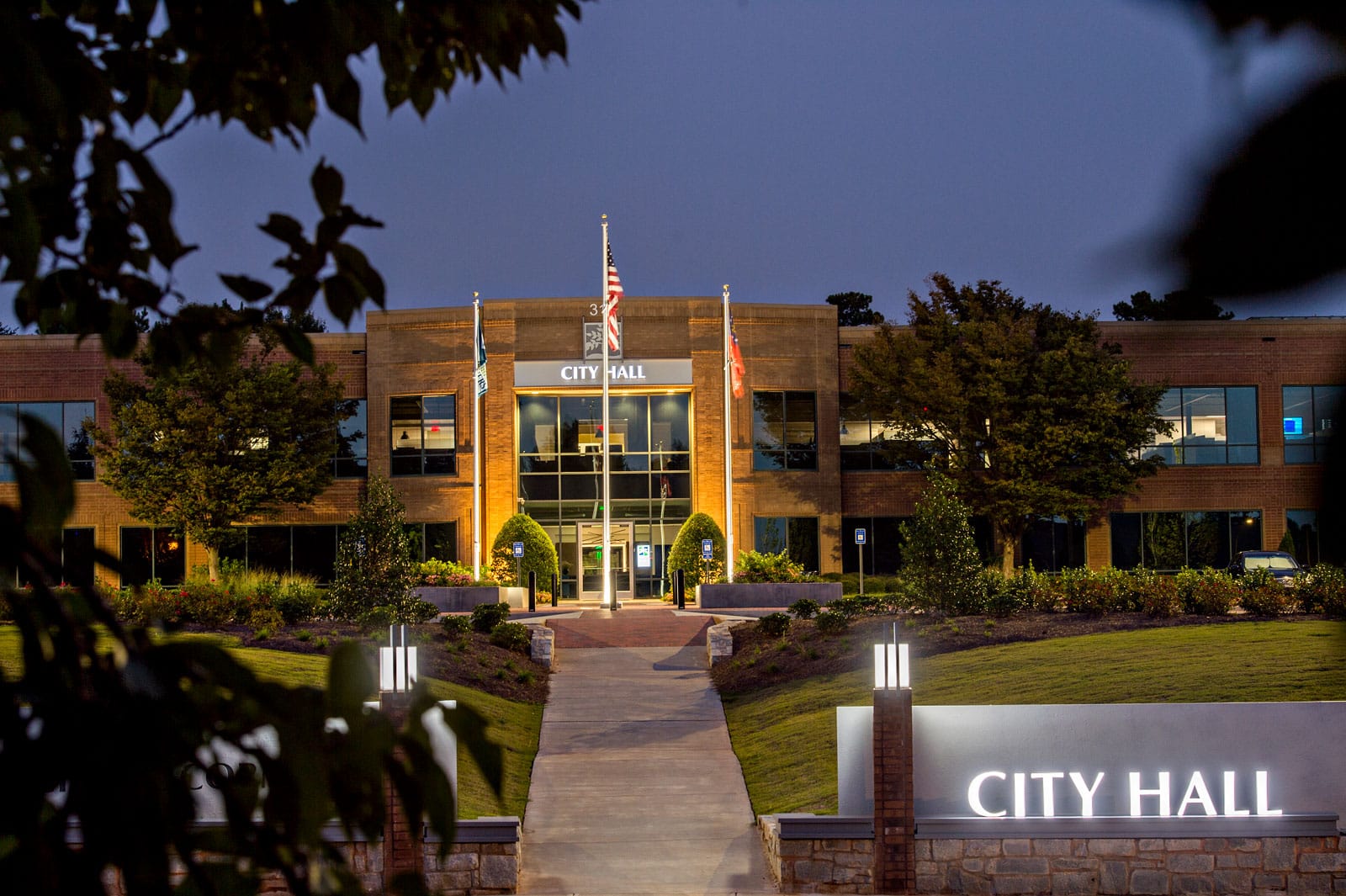
Some people lament paying taxes. They don’t understand that taxes allow us to live in a more civilized manner, helping and protecting us all along. That’s why I don’t mind paying reasonable taxes for the safety of everyday living.
Many don’t recognize it, but you are often paying a small tax without realizing it as you go about your everyday business….but it’s not called a tax.
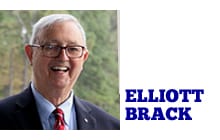
It’s called a “fee.” Each time you pay your power or utility bill and cable bill, your insurance premium, when you rent a hotel room or car…and other ways…you are providing a few cents or dollars to help fund mostly local government.
The newly-minted City of Mulberry (and previously Peachtree Corners) will run its government without taxing property owners paying a tax to fund its operations. How so? Entirely from fees.
Let’s visit what the other city without property taxes, Peachtree Corners, is doing.
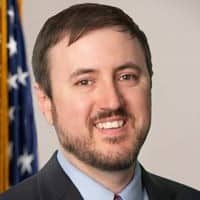
We talked with Cory Salley, who is the finance director for Peachtree Corners. He sent along a graphic which shows where Peachtree Corners gets its funding, as well as how it is spent. (See graphic.)
For the most part, Peachtree Corners is funded by fees. The biggest comes from Georgia Power Company, paying $2.8 million in fees for the city for 2025. Other utilities include $450,000 from Atlanta Gas Light Company; $250,000 from Comcast; $70,000 from Direct TV; and $42,000 from AT&T. (That last figure was interesting, in effect, showing how few people have land-line telephones anymore.) Altogether, utility fees brought in $4.3 million in Peachtree Corners for 2024.
Another bucket of fees include $3.8 million in insurance fees. This comes in one check from the Department of Revenue, which collects insurance fees for all cities.
Each business in Peachtree Corners pays an occupational business license tax. With lots of professional offices in the city, these businesses contribute $4.4 million to the city coffers.
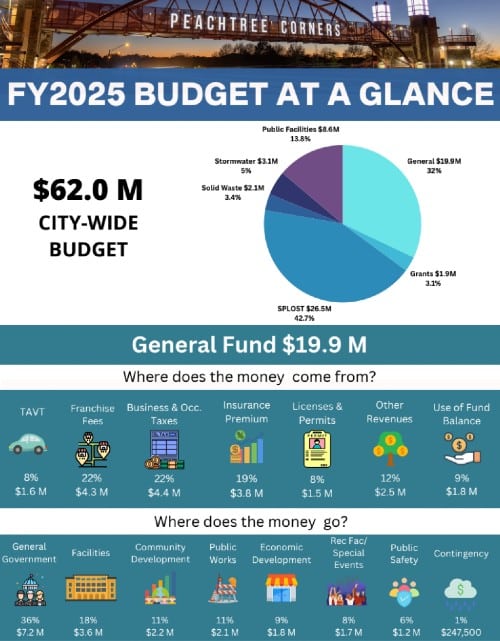
Other fee collections for 2024:
- Alcoholic licenses and sales: $1 million.
- Zoning and land development permits: $1.4 million.
- SPLOST funds on sales within Peachtree Corners: $10 million.
- Automobile and vehicle purchases: $1.7 million. This is interesting: no matter where you buy an automobile in Georgia, part of the sales tax reverts to the city where you live.
Then there are other funds coming to the city; stormwater fees, grants, solid waste, etc. Altogether, it added up to approximately a $40 million income to run the city.
Some specifics and the way they are figured:
- Real estate transfer taxes: This tax is imposed at the rate of $1 on the first $1,000 and 10 cents on each additional $10 on any conveyance of real property when the value of the interest transferred exceeds $100.
- Distilled Spirits—up to 22 cents per liter on package sales and up to 3 percent of the sale price of a drink on sales to the public;
- Wine—up to 22 cents per liter; and
- Malt Beverages—up to $6.00 per bulk container (no more than 15.5 gallons) to be paid by the wholesaler and up to 5 cents per 12 ounces when sold in bottles, cans or other containers.
- A municipality may levy a business license tax on depository financial institutions (such as a bank.) The maximum rate of this tax is 0.25 percent.
- Hotel-motel tax: a municipality may levy a hotel-motel tax at a rate of 3 percent or less or at a rate of 5, 6, 7, or 8 percent. (Yes, let the out-of-towner pay!)
Perhaps this gives you an idea of how a city, like Mulberry in the future, can operate without property taxes.
Have a comment? Send to: elliott@elliottbrack
Written by Elliott Brack
This material is presented with permission from Elliott Brack’s GwinnettForum, an online site published Tuesdays and Fridays. To become better informed about Gwinnett, subscribe (at no cost) at GwinnettForum.
Related
Read the Digital Edition
Subscribe
Keep Up With Peachtree Corners News
Join our mailing list to receive the latest news and updates from our team.
You have Successfully Subscribed!

Expanding Horizons: How KGM Technologies Balances Defense, Medical, and Precision Manufacturing

Why Patient Experience Matters: A Conversation with Dr. Aristo Shyn

Burn The Ships: Alex Wright on Committing to Success & Helping Businesses Thrive

Public Notice: Scheduled Maintenance on Town Center Parking Deck

Mike Schleifer to Leave Alliance for Lincoln Center Theater

Inside the Solicitor General’s Office: Lisamarie Bristol on Justice in Gwinnett County

Holy Week, Easter Sunday and Church Events in April

Our Growing Deer Population: What to Do?

Our Growing Deer Population: What to Do?

Holy Week, Easter Sunday and Church Events in April

Expanding Horizons: How KGM Technologies Balances Defense, Medical, and Precision Manufacturing

Mike Schleifer to Leave Alliance for Lincoln Center Theater

Public Notice: Scheduled Maintenance on Town Center Parking Deck

Inside the Solicitor General’s Office: Lisamarie Bristol on Justice in Gwinnett County

Why Patient Experience Matters: A Conversation with Dr. Aristo Shyn

Burn The Ships: Alex Wright on Committing to Success & Helping Businesses Thrive

Light up the Corners [Video]

Capitalist Sage: Business Leadership in Your Community [Podcast]

Cliff Bramble: A Culinary Adventure through Italy

Top 10 Brunch Places in Gwinnett County

A Hunger for Hospitality

THE CORNERS EPISODE 3 – BLAXICAN PART 1

Top 10 Indoor Things To Do This Winter

The ED Hour: What it takes to Remove Barriers from Education






